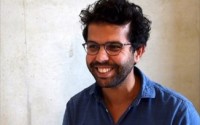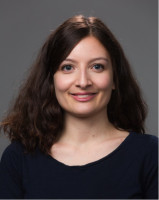Longevity, Ageing and Long-term Care
Health Technologies
Healthy Ageing & Longevity
Air Quality
Mécénat des Mutuelles
France
E-health at the Service of Ageing Well with the ICOPE Program (WHO)
For the World Health Organization (WHO), healthy ageing is a right that must be offered to the population. The WHO has identified six key functions (mobility, nutrition, vision, hearing, cognition, psychology) that define a person's intrinsic capacity and are considered necessary for maintaining independence as people age. A dependency prevention program called ICOPE (Integrated Care for Older People) has been developed with the aim of intervening early when one of the 6 functions is altered before the alteration is irreversible. The program is based on the implementation of an integrated care pathway with 4 steps.
After developing the tools necessary for the identification and evaluation of functions (steps 1 and 2), Néda Tavassoli's project proposes to develop tools to monitor the personalized prevention and follow-up interventions of the WHO's ICOPE program (steps 3 to 4).
The interest of the tools will be evaluated in a mixed approach combining qualitative research and quantitative descriptive research.
The overall long-term objective of the project is to delay the loss of autonomy of seniors by facilitating their follow-up by caregivers (digital tools for the management of the ICOPE pathway) and by improving the adherence of seniors to a preventive approach (e-learning platform).

Néda
TAVASSOLI
Institution
IHU HealthAge
Country
France
Nationality
French
Related articles
Mental Health & Neurology
Extreme Weather Events
Pollution
Alzheimer's Disease, Dementia & Neurodegenerative Diseases
Droughts & Heatwaves
Air Quality
Mécénat des Mutuelle
France
CLIMABRAIN: Impacts of Extreme Weather on the Most Vulnerable Living with Alzheimer's disease
In the context of the increase in extreme weather events due to climate change, the project led by Tarik Benmarhnia... Read more

Tarik
BENMARHNIA
Institut National de la Santé et de la Recherche Médicale
Pollution
Healthcare Systems
Toxic Pollutants & Hazardous Substances
Public Health & Health Policy
Air Quality
Water Quality
AXA Award
Switzerland
Grand Jet d'Or Award on Adverse Effects of Pollution on Humans
The World Health Organization estimates that exposure to air pollution is responsible for about 7 million premature deaths worldwide each... Read more
Geneva Health Forum
(GHF)
